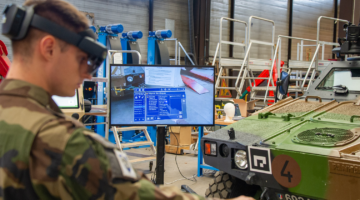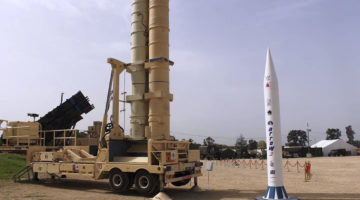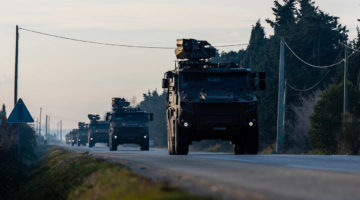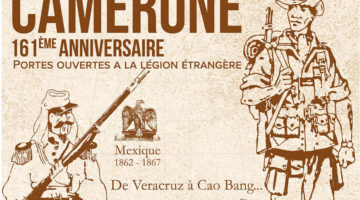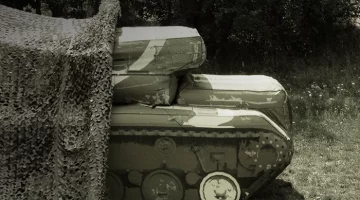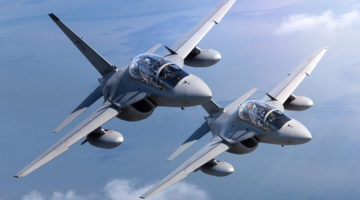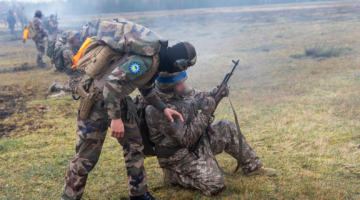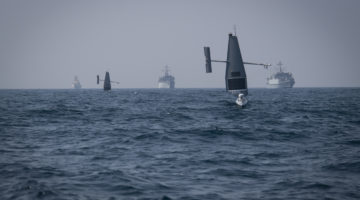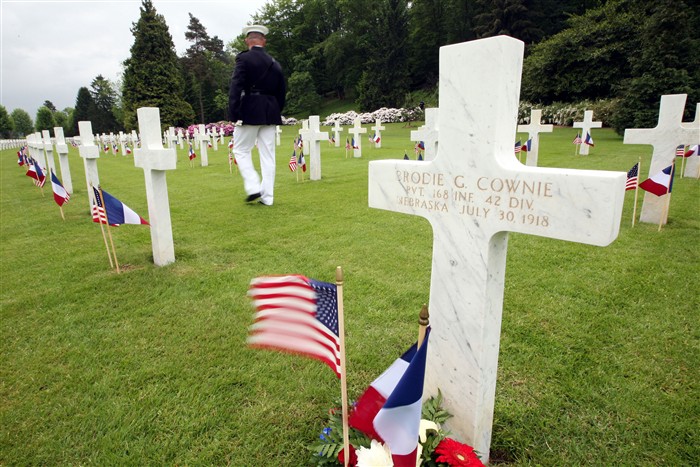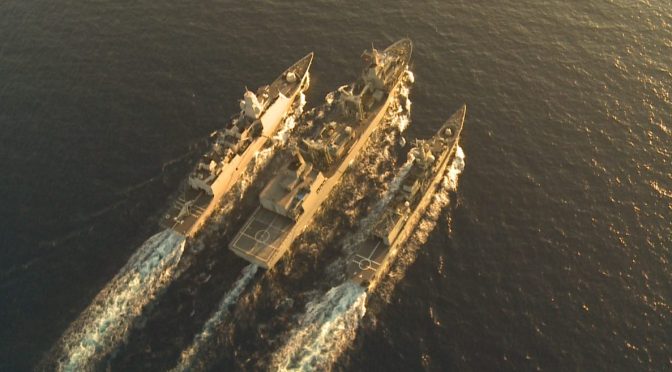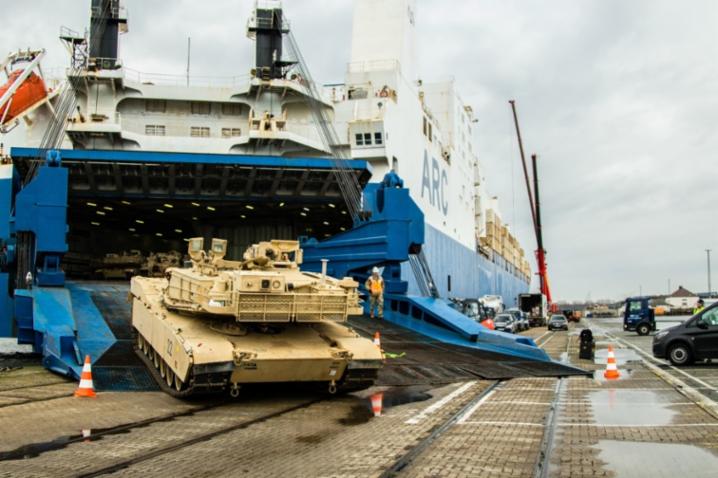Photo credit © EUCOM
U.S. Marines, French counterparts, and the American Battle Monuments Commission will host the Belleau Wood Memorial Day Ceremony at Aisne-Marne American Cemetery in Belleau, France. The ceremony on May 25, 2014, commemorates its 96th anniversary as well as the long-term friendship between France and the United States while honoring the sacrifices made by U.S. and French troops during the battle.
This year’s participants from the United States will include: Commandant of the Marine Corps Gen. James Amos; personnel from the 6th Marine Regiment, 2d Marine Division (2D MARDIV) band; a Wounded Warrior Regiment; and personnel from U.S. Marine Corps Forces Europe and Africa (MARFOREUR/AF).
French participation will include: Chief of Staff of the Army General Bertrand Ract-Madoux; Préfect of Aisne, M. Hervé Bouchaert; the mayor and deputy of Chateau Thierry, M. Jaques Krabal; the mayor of Belleau, Mme. Nadia Crapart; the French troupes de Marine Military Band; and 3ème Régiment d’Artillerie de Marine (3ème RAMa) in addition to others.
The commemoration will be held in the memorial cemetery that lies outside the historic grounds of Belleau Wood and will feature the laying of wreathes, a firing of volleys, the playing of taps, raising of the American and French national colors, and a concert by the 2D MARDIV band.
The American Battle Monuments Commission (ABMC) is the guardian of America’s overseas commemorative cemeteries and memorials that honors the service, achievements and sacrifices of U.S. Armed Forces. Established by the American Federal Government in 1923, the ABMC designs, constructs, operates and maintains permanent American cemeteries in foreign countries and maintains U.S. military memorials, monuments and markers where American armed forces have served overseas since April 6, 1917.
For those who are not Marines, the meaning and importance of at Belleau Wood for the USMC was highlighted during a speech by Lt Col Hank Detering (USMC- Ret) given at the time of honoring the USMC birthday last November.
Excerpts from that speech follow:
I would like to tell our guests why we are gathered here today, and perhaps give everyone a brief history lesson. Marines around the globe are celebrating our birthday, as we have done since the days of General LeJeune.
No other US service places such a strong emphasis on history and tradition.
One of the first things we learn in boot camp is that we are the guardians of our corps’ accomplishments.
It is our responsibility, our sacred duty, to uphold the reputation, the traditions, the honor, and the accomplishments, of all Marines who came before us.
This is what sets us apart from all our sister services.
It makes us fierce warriors, it has given us a special place in the hearts of our nation, and it has accounted for our continued survival when others would prefer to see us go away…..
We all know about the Marines at Belleau Wood.
Americans were going into battle against the unstoppable German Army, and everywhere people asked, with as much hope as curiosity, “Can these Americans fight?”
It was our Marine Corps that provided the answer, a resounding “YES!”
We know the story about the retreating French Major, who ordered the Marines to turn around,
And the Marine Captain who replied, “Retreat hell, we just got here.”
And we all remember GySgt Dan Daly’s immortal words, “Come on you sons of bitches. Do you want to live forever?”
Our Marine riflemen were dropping Germans at 700 yards.
The Germans were astonished.
The effectiveness of the rifle fire broke up their attack.
We crossed the wheat fields at Chateau-Thierry, held for 19 days, and repulsed 5 German counter attacks.
Marines took over 4000 casualties, 55% of the Brigade, 1087 men on the first day alone.
When the Captains fell they were replaced by Lieutenants.
When the Lieutenants fell they were replaced by Sergeants.
Sergeants by Corporals, Corporals by Privates.
Marines captured over 12,000 German soldiers, while the Germans captured only 25 Marines.
How do you account for it?
The explanation was simple, Marines don’t surrender, they win or they die.
For Germany, it was the turning point of the war, it was as close to Paris they would ever get.
And as they left France in defeat the Germans gave the Marines a new nick-name, “teuffelhunden” — Devil Dogs”
Now, here is a little history that you probably don’t know.
Black Jack Pershing was in command of the US forces headed for Europe.
He did not like Marines, was offended by our “First to Fight” motto, and decided that “this thing in Europe” would be an “all-Army affair.”
Our Commandant went over Pershing’s head to the secretary of war who sent two Marine Regiments to France, the 4th Brigade, 8000 men, a mere 1% of the European force.
So, Pershing assigned the Marines, he did not want, to the rear to build warehouses and unload ships.
The Marines did as they were told, and in their spare time they practiced their marksmanship.
Pershing scorned trench warfare and believed that the Americans could break the war wide open.
But, he was adamant that his troops not fight under foreign officers, so Americans were slow to enter the fray.
Eventually, as the Germans advanced toward Paris, the Americans were committed.
Pershing placed the Marines where they would be of little consequence, or so he thought.
It was a decision he would forever regret.
On June 6th, 1918, the headlines back home read, “US Marines Smash Huns, gain glory in brisk fight on the Marne.”
The next day, “Marines win hot battle, sweep enemy from heights near Thierry.”
And on the third day, “Our Marines attack, gain mile at Veuillay, resume drive at night, foe losing heavily.”
Then, on July 10th, President Woodrow Wilson reported to the United States Senate that the Marines had “turned the tide of battle” and that Belleau Wood had “begun the route that was to save Europe and the World.”
Folks at home thought there was nothing on the Western Front but Marines and dead Germans.
America had begun its love affair with her Marines.
Before 1918, few people had ever heard of the United States Marines.
After Belleau Wood, people all over the world knew about them.
Marines were no longer a shipboard gendarmerie.
We had demonstrated that the Marines could respond with trained troops, and more quickly, than any other branch of the US military.
Not only would our boots be first on the ground in America’s future wars,
The word “MARINE” would be synonymous with the word “victory.”
Other great battles lay ahead,
Guadalcanal and Iwo Jima in WW II.
The Pusan Perimeter and the Chosin Reservoir in Korea,
Hue City and Khe Sanh in Viet Nam,
Anbar Province and Fallujah in Iraq, and Helmand Province in Afghanistan, but Belleau Wood may still be the most significant battle ever fought by the Marine Corps.

